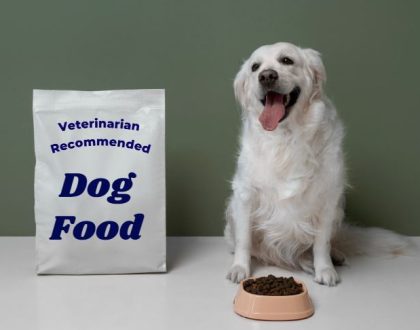
the scientific study of pet nutrition by veterinary nutrition specialists and experts.
Can Diet Prevent or Treat Urinary Tract Infections in Dogs?

Dealing with urinary tract infections (UTIs) in our dogs can be a real headache. But fear not, we’re here to shed some light on this issue and discuss whether diet plays a role in preventing or treating UTIs.
First, let’s understand what UTIs are:
These pesky infections happen when bacteria find their way into the urinary tract and start multiplying. This is more common in female dogs and you may notice more frequent trips to the bathroom or a change in color and smell in your dog’s urine. UTIs can lead to discomfort and even health complications. Dogs with recurrent UTIs might experience multiple episodes and often need ongoing care and attention. The causes can vary, from anatomical issues to increased risk from other diseases like diabetes or even a previous infection that we thought had cleared but actually needed longer treatment or a different type of antibiotic.
Does diet have a role in UTI prevention or treatment?
Unfortunately, there’s no evidence that diet can reduce the risk of UTIs. There are some specially formulated veterinary therapeutic diets for urinary conditions, but those are designed to dissolve or reduce risk of specific urinary stones. Though some urinary stones can be caused by UTIs or can increase the risk of development of UTIs, even these specially formulated diets cannot help unless the UTI is medically treated (more information in one of our previous blogs here). For dogs with UTIs that don’t have any stones, a regular maintenance diet should suffice. For dogs with a history of stones, your veterinarian may recommend a special therapeutic diet to help dissolve the stone(s) or reduce the risk of recurrence after surgical removal.
What about dietary supplements?
When it comes to supplements, we’re extra cautious about making recommendations. After all, they do not have to provide proof of benefits or undergo safety testing (you can find more about this in our supplement post) before being sold to pet owners. The dietary supplement industry for people and pets is the regulatory equivalent of the wild, wild west.
That said, one area of research that may be promising is cranberry extract for UTIs in dogs. Cranberry extract contains compounds called proanthocyanidins, and some evidence suggests that they can help reduce the risk of UTIs in dogs by interacting with the bacteria E. coli, a common culprit behind UTIs. These compounds are thought to effectively block the “arms” of the E. coli bacteria, preventing them from sticking to the bladder wall. As a result, infections become less likely or less frequent, but there’s a catch…while cranberry extract might work wonders for some dogs, it’s not a guaranteed fix for everyone. (Of note, this has not been tested in cats and would not help a dog with a UTI caused by a bacteria other than E. coli). Every pet is unique, and what works for one might not work for another. That’s why it’s essential to talk with your veterinarian to know whether this may be helpful for your dog, and if so, which brands have undergone important testing and quality control.
Any other diet tips for reducing risk?
Hydration is the key to maintaining a healthy urinary system, so a first step is making sure your dog always has access to fresh clean water. For dogs that don’t seem to drink enough water on their own, you can encourage them to drink more by adding water to their dry food or considering canned foods.
Overall, the key to your dog’s urinary health lies in prompt diagnosis, proper treatment, and addressing any contributing factors. Don’t hesitate to chat with your veterinarian about creating a personalized monitoring and prevention plan to keep your dog’s bladder happy and infection-free!
Written in conjunction with veterinary student, Thomas Wolf.
Want to read more information on feeding your pet?
Subscribe to always know when we add new material!
Recommended Posts

Can Diet Help With My Dog’s Seizures?
January 18, 2024

The Most Popular Holiday Foods…That Your Pet Should Avoid!
December 08, 2023

Veterinarian Recommended Pet Foods: What You Need to Know
November 05, 2023

